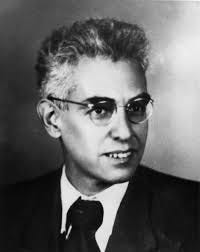Enhancing Memory: Understanding the Myths and Realities
Written on
Chapter 1: The Nature of Memory
Memory is a complex element of our brains, intricately woven into the fibers leading to our nerve cells, where it can persist indefinitely. Even as we age and perceive memory loss, we may not actually forget anything. Instead, the challenge lies in our ability to retrieve these memories.
What transpires when we struggle to recall information? Some experts propose that this might be due to a lack of essential components that we have yet to identify. Forgetting could be a natural process that allows our brains to refresh and make room for new information. Interestingly, even during this process, certain memories might remain intact, while others slip away from our grasp.
Our brains, comprised of roughly 100 billion neurons, empower us to achieve remarkable feats, from mastering multiple languages to engineering spacecraft. Yet, despite this incredible capacity, it's common for us to misplace our keys, forget our grocery lists, or struggle to remember significant life events.

Chapter 2: The Case of "S"
Consider the case of a man known only as "S," a newspaper reporter who possessed an extraordinary ability to remember everything he encountered. His editor, astonished by his lack of note-taking, challenged him by reading an entire section of the newspaper aloud, which S recited back verbatim. This led to an evaluation by the renowned neuropsychologist, Dr. Alexander Luria.
Dr. Luria assessed S’s memory through a series of tests involving lengthy strings of numbers, foreign poetry, and scientific formulas, all of which S recalled flawlessly. Yet, this prodigious memory was not a blessing; S viewed his condition, now termed hyperthymesia, as a burden. His experiences have been chronicled in the book "The Mind of a Mnemonist."

Chapter 3: Sleep and Memory
Sleep has long been recognized as the period during which our brains consolidate memories. However, recent studies suggest that excessive sleep could indicate the onset of dementia, raising questions about the relationship between sleep and memory retention.
Excessive Daytime Sleepiness (EDS) has been linked to increased amyloid accumulation in older adults without dementia, indicating a potential vulnerability to Alzheimer’s disease. While sleep is essential for memory processes, the effectiveness of over-the-counter (OTC) supplements in enhancing memory, particularly in the presence of amyloid production, remains a topic of growing interest.

The video "Brain Boosters: 5 Tips for Better Memory and Focus" explores practical strategies for enhancing memory and cognitive function.
Chapter 4: The Rise of Memory Supplements
The popularity of over-the-counter dietary supplements, often referred to as “nootropics,” aimed at improving memory and mental clarity has surged in the United States, generating hundreds of millions in annual sales. However, the FDA has expressed concerns regarding the safety of these products, as many have not undergone rigorous human testing.
Dr. Pieter A. Cohen from Harvard Medical School has noted that the market for these “smart pills” exceeds $600 million annually, with a significant worry that some untested drugs are present in these supplements, raising potential health risks for consumers.

Chapter 5: Understanding Forgetting
Forgetting is a common concern, especially among older adults. One patient expressed anxiety about his memory, fearing he had "old-timers' disease." However, no familial history of Alzheimer's existed, and his memory issues were more linked to anxiety than any neurological disorder.
It's typical for memories to fade if they aren't regularly accessed, but they can often be recalled with some effort. This phenomenon suggests that memories are not truly lost; rather, they may be dormant. For example, many of us may struggle to remember algebra learned in high school, yet we could easily relearn it with minimal effort.
Neuroscientist Marc Howard emphasizes that recalling distant memories can be more challenging than recent ones. According to Blake Richards of the University of Toronto, memory serves to optimize future decision-making rather than simply storing information indefinitely. To maintain sharpness, it's crucial to keep the mind engaged through learning, reading, and memory-challenging activities.
